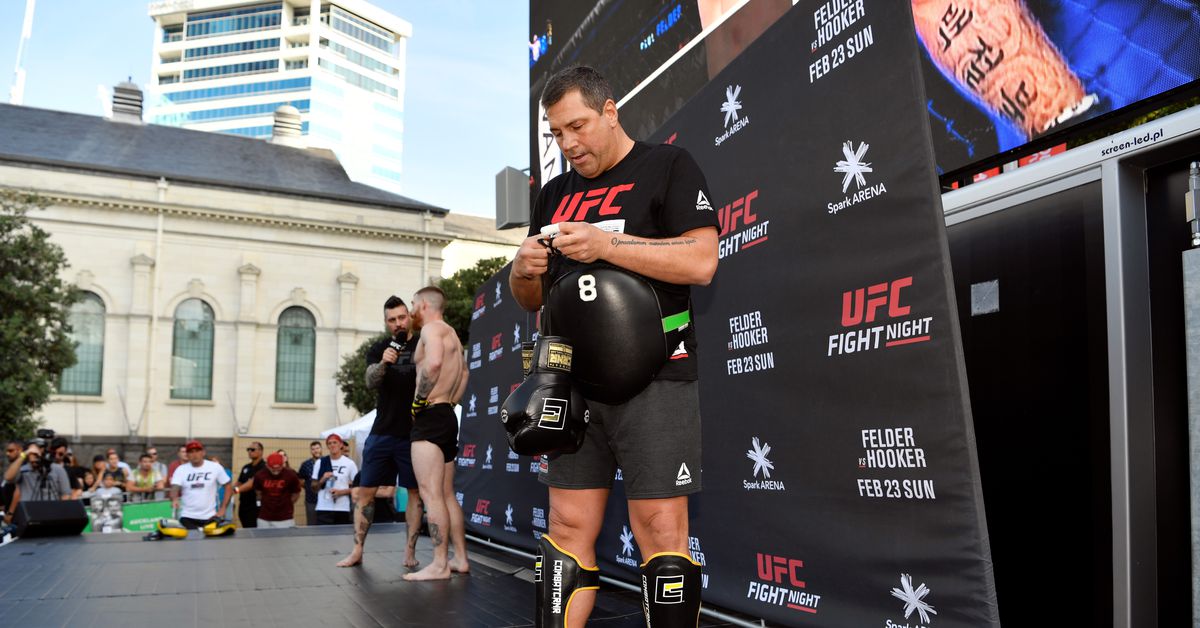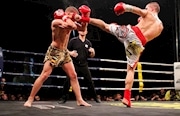
There were two fights that changed veteran MMA coach Duke Roufus’ perspective on stopping fights.
Earlier in his career, Roufus, the longtime head coach and owner of Roufusport, admitted to giving his fighters too much leeway in deciding whether they were still competitive in a fight. That changed when two of his most famous students, ex-UFC lightweight champ Anthony Pettis and Paul Felder, were seriously injured in bouts.
“Anthony broke his orbital against [Rafael dos Anjos at UFC 185], and we kept trying to have a song and dance and a prayer that he pulled something out. And you know what? He ended up getting thrashed for many rounds, which was detrimental to his career at that time,” Roufus revealed in an interview with MMA on SiriusXM.
“Paul Felder, when he broke his arm against Mike Perry [at UFC 226], should have stopped that fight, and I learned a lot from those experiences, when I had to live with the regret of that, and it’s something I bring now into my coaching skill set is empathy, sympathy.”
Those traits can be blunted, Roufus said, because the stakes of a fight in the UFC are so high that fighters’ corners don’t feel empowered to make decisions that could hurt their career.
“The title is so hard to get in MMA that sometimes our passion for glory is too strong for our wits and humanity in doing what’s the right thing,” he said.
Longtime MMA coach John Hackleman said as much while reflecting on his attempt to call off the UFC 283 main event between Jamahal Hill and Glover Teixeira. Although happy that Teixeira didn’t take more damage after he tried to have the bout called off, he said he’d seen enough to stop the bout after the third round. The prospect of watching his fighters hurt was one of the reasons he resolved never to corner another fight.
Hill vs. Teixeira and another brutal UFC 283 bout between Jessica Andrade and Lauren Murphy reignited the discussion about fighter safety and a corner’s responsibility to protect their fighter.
Roufus said he gained a new perspective not only from his mistakes, but his experience as a professional fighter. That can be lacking, he said, in bigger gyms where fighters get less 1-1 time with their coaches, who may not put as much time into teaching defensive tactics.
“What I’ve got going for me is I’ve gotten my ass kicked,” Roufus said. “I’ve been destroyed, been wrecked in fights. I know what it feels like. I think there’s a lot of coaches who’ve had some success coaching, but they’ve never gotten their heart torn out and destroyed in the ring like some of these kids are getting, and I think we’ve got to shift that culture. It’s your job to protect the fighter.”
Check out Roufus’ interview below.
« Sometimes our passion for glory is too strong for our wits and humanity in doing what’s the right thing. »
One of the few who has stopped a fight, Duke Roufus shares the mistakes he’s made in the corner & why he thinks there’s a lack of corner stoppages in MMA w/@jimmysmithmma pic.twitter.com/7ZH0FUaz8j
— MMA on SiriusXM (@MMAonSiriusXM) January 27, 2023
